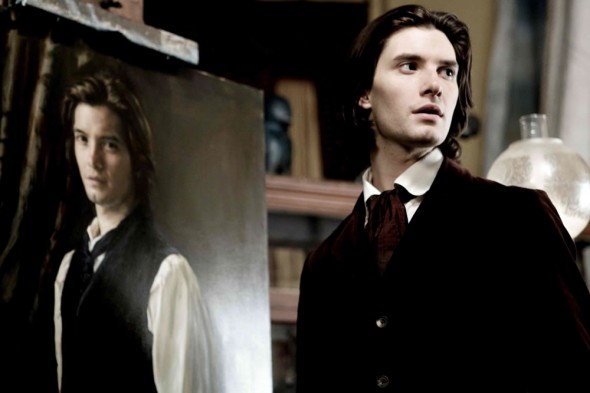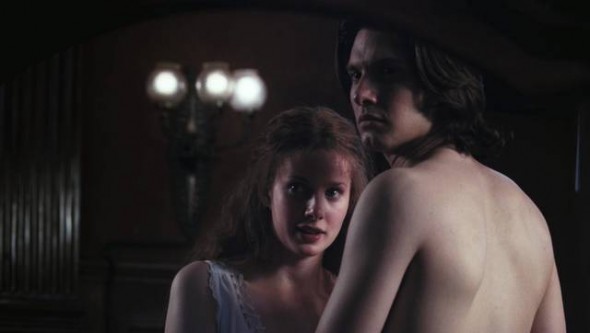
Roadshow Films | UK | 112 min
Although a quaint take on a gothic masterpiece, Oliver Parker’s Dorian Gray is enthralling and visually appetizing. This is Parker’s third adaptation of an Oscar Wilde book, so it is no surprise that he feels comfortable enough to take certain liberties with the film’s dynamics. Together with scriptwriter Toby Finlay, Parker pumps up the eroticism and spills the industrial consumerism of Victorian England into the party scene of the wealthy. It has pomp and it has flair, but Dorian Gray has a firm literary appeal to it that will alienate casual viewers wanting a film that doesn’t take itself too seriously.
Dorian (played by Ben Barnes), a pleasant and beautiful eighteen year old, moves to London and meets a society painter, Basil Hallward (Ben Chaplin), whom he commissions to paint a self portrait to hang in the house he has inherited from his father. The painting portrays Dorian as a perfect, unblemished young man. Basil himself claims it to be his best work. Dorian, influenced by the worldly advice of Basil’s friend, Henry Wotton (Colin Firth) vows that he would sell his soul to remain as beautiful as he looks on canvas. As a result, his soul becomes implanted in the painting, which grows old and grotesque while Dorian remains physically unchanged.
Much of the complex psychological issues that arise from Wilde’s original text are lost in Barnes’ innocent portrayal of the vain and superfluous Dorian. He seems to remain boyish and ignorant throughout any crises he goes through. The horror that should build to a climactic ending falls flat and seems almost melodramatic. However, Firth as Henry, instigator of Dorian’s obsession with youth, gives the film some comparable stability. The most poignant moment occurs after Dorian returns from an extended trip around Europe. He has not aged a day, whereas for his friends in London, decades have passed and it shows. The hypocritical Henry wishes for Dorian’s everlasting and whimsical youth but his life as a married man has been what he has always wanted. Firth is encapsulating with his misplaced beliefs and even more so as an aged, protective father.

Parker replaces horror with the grotesque and although it doesn’t give the audience some well-needed shock value, it is violent enough to make Dorian Gray memorable for more than its wild party scenes and erotic anti-hero. Indeed the methods that Dorian goes to in order to protect his youth seem to have been given more thought than the disappointing climax suggests, which also gives CGI a bad name.
Nevertheless, much effort has been put into the sets and cinematography of this English film. The grungy streets of an impoverished, industrialized London offer their own haunting story as we watch Dorian take for granted the wealth he has inherited. Dorian’s sexual escapades (particularly in one party scene) are hilarious, a reminder of director Lasse Hallstrom‘s take on Casanova. But there is never a moment where the audience is allowed to forget the price Dorian must pay for this kind of existence. The contrasts Parker makes between the advantages of everlasting youth and the pittances of unending, everyday life are thought-provoking beyond the rolling of the credits. For this, Wilde would have been proud.
Sadly, Dorian Gray has not yet received a release date in America, but as a worthy interpretation of a seminal text it will reach the states in some form, even if it is merely a DVD release.
6.5 out of 10

